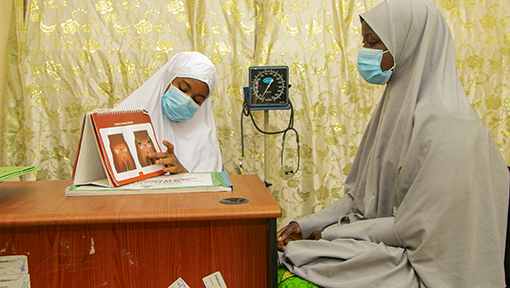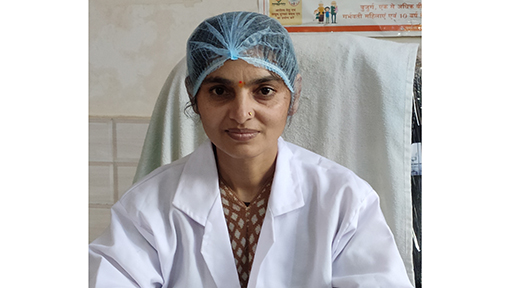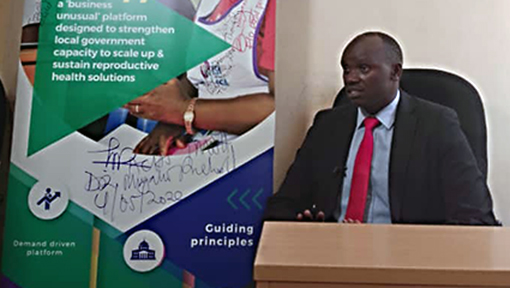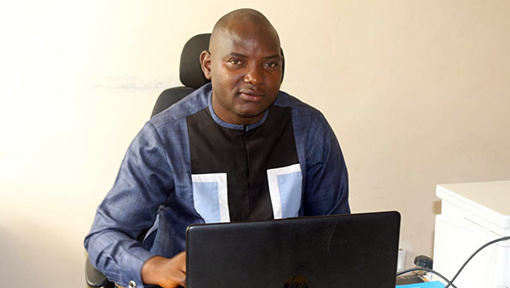Diffusing TCI Proven Interventions in East Africa Through Online Mini-University Sessions
Contributors: Levis Onsase, Nancy Aloo, Morine Sirera and Njeri Mbugua
 The Challenge Initiative (TCI) believes in strengthening health systems so there is the required capacity to reach everyone in need of quality reproductive health services. This is why the scale up of sustainable high-impact best practices is critical and the ability of local government health staff to implement them with available resources is essential for making this happen. During the month of August, TCI, also referred to locally as Tupange Pamoja, invited various stakeholders to participate in an online mini-university session to share implementation learnings from some of its high-impact family planning and adolescent and youth sexual and reproductive health (AYSRH) interventions. In attendance were over 65 participants drawn from both TCI and non-TCI sites.
The Challenge Initiative (TCI) believes in strengthening health systems so there is the required capacity to reach everyone in need of quality reproductive health services. This is why the scale up of sustainable high-impact best practices is critical and the ability of local government health staff to implement them with available resources is essential for making this happen. During the month of August, TCI, also referred to locally as Tupange Pamoja, invited various stakeholders to participate in an online mini-university session to share implementation learnings from some of its high-impact family planning and adolescent and youth sexual and reproductive health (AYSRH) interventions. In attendance were over 65 participants drawn from both TCI and non-TCI sites.
Mirrored to reflect the short-term courses offered at a conventional university, the topics for the two-hour mini-university were selected based on existing gaps identified during implementation. Implementers reviewed the latest results from TCI’s self-assessment tool, Reflection and Action to Improve Self-Reliance and Effectiveness (RAISE), and came up with an action plan to focus coaching and knowledge exchange on items that scored the lowest. Dr. Salma Swaleh, Director of Public Health Services of Mombasa County, explained how the use of RAISE helped to focus their efforts:
We have now done RAISE assessments four times and realized that the pharmacy approach was getting recognition by implementers. We need to continue to collaborate with the Kenya Pharmacy Association (KPA). More than 80% of our facilities are private and the young people access their contraception methods there. If we get the data into the KHIS, it will improve the county’s FP indicators.”
As a result, the mini-university was designed not only to expose participants to TCI’s model and its high-impact urban family planning and AYSRH interventions, but also provide skills-building opportunities for the adoption of its high-impact solutions related to coaching, working with pharmacists to increase access to contraceptive services among youth and data use for decision-making. Peter Kagwe, Program Lead of TCI Kenya, shared:
The objective is to promote the transfer of knowledge amongst implementers and partners and amplify diffusion of the high-impact interventions beyond TCI cities. There are critical resources in TCI University that will help guide your implementation of FP/AYSRH interventions, log in and utilize the toolkit.”
During the mini-university, TCI’s high-performing cities shared key lessons learned from their experience implementing the high-impact solutions. The Sisi Kwa Sisi coaches from the high performing cities guided participants on the onboarding and implementation processes of TCI’s “Lead, Assist and Observe” coaching model. Sessions were highly interactive and participatory, ranging from open floor discussions to live demonstrations. Participation was open to local government implementers from national to community level. A TCI stakeholder from Mombasa Country, Pauline Oginga, Chief Officer Public Health Services, shared this about her experience:
This is the best place to learn from others and also get to know what they are doing that we could emulate in our various implementation sites or facilities to improve our indicators and especially now that we are dealing with COVID-19.”
Another participant from a non-TCI supported county, Margaret Chuya, Reproductive Health Coordinator, Taita Taveta County, explained what she learned from the mini-university:
That we can collaborate with pharmacists and chemists in young people access to contraception and data can be uploaded into HMIS. Change is possible if we embrace the youth and educate them on proper use of FP methods.”
In response to the session on data for decision-making, specifically looking at AYSRH data, Dr. Mohamed Hanif, County Pharmacist from Mombasa County, said:
We realized that our FP indicators are low and most of the clients access their contraceptives from the private facilities. This is why we are collaborating with the pharmacies and link them with the nearby facilities to submit their reports which will be captured into HMIS.”
Given the success of the mini-university as a platform for sharing and diffusing TCI proven approaches, TCI plans to host a number of additional sessions with stakeholders throughout East Africa. It will incorporate the follow learnings into future sessions:
- It is important to include the key facilitators from city level from the design of the session plans to ensure their buy-in and get their feedback.
- Create a technical group to help in planning and review of the content that will be shared during the sessions.
- Consider sharing the information with participants beforehand so they can familiarize themselves with the TCI model.
- Provide as many opportunities as possible to encourage cross-county sharing and group activities to strengthen coaching on the selected proven approaches that are being discussed.
For more information, please contact your TCI focal person or email us at [email protected]






